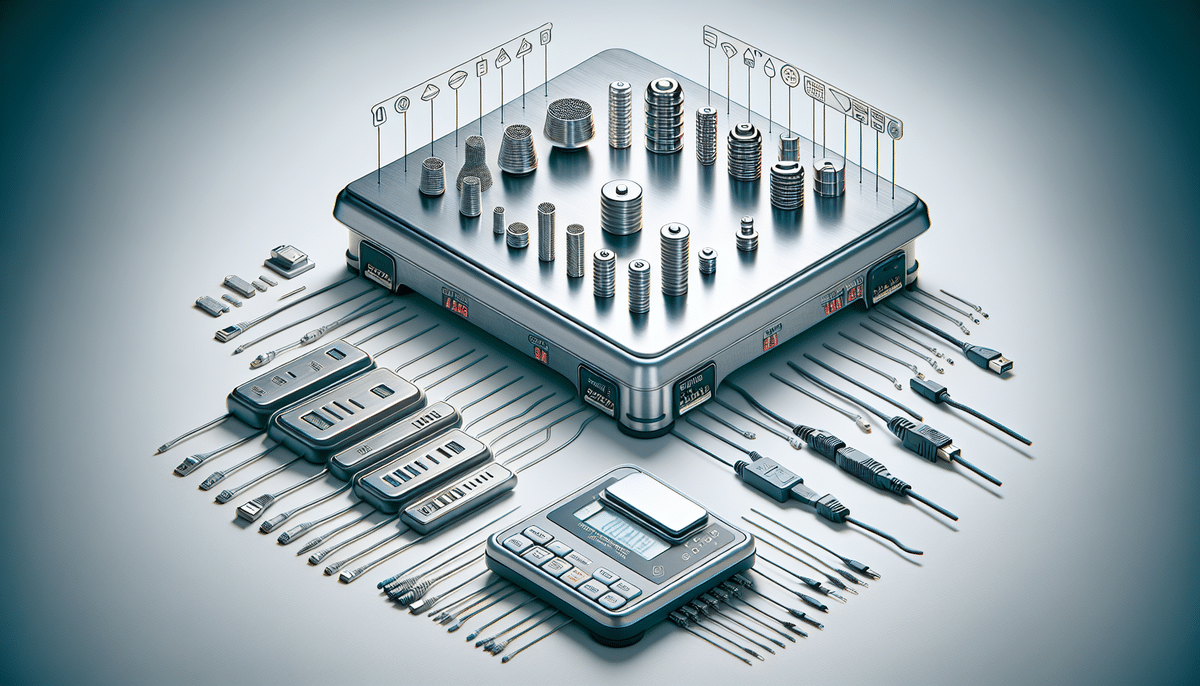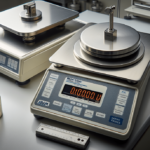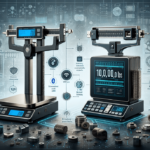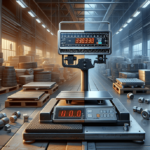Adam Equipment CPWplus vs CAS RW-L Series: Comprehensive Weighing Scale Comparison
When selecting a weighing scale, accuracy is paramount across diverse applications, including industrial, laboratory, and retail environments. The market offers a plethora of brands and models, each boasting unique features and specifications. This article provides an in-depth comparison of two prominent weighing scales: the Adam Equipment CPWplus and the CAS RW-L Series. Our goal is to aid you in making an informed decision tailored to your specific weighing needs.
Introduction: The Critical Role of Accurate Weighing Scales
Weighing scales play a vital role in accurately measuring the weight of objects or materials. Precision in weighing is essential to prevent significant errors that can impact various applications, such as chemical experiments, ingredient measurements in cooking, or retail pricing. Choosing a reliable and high-precision weighing scale is therefore crucial to ensure measurement accuracy.
Calibration stands out as one of the most critical factors influencing accurate weighing. Regular calibration ensures that the scale maintains accurate and consistent measurements. Environmental factors, such as temperature fluctuations, can also affect scale accuracy by causing expansion or contraction of components, leading to unreliable readings.
Additionally, the capacity and readability of a scale are important considerations. Capacity refers to the maximum weight the scale can measure, while readability indicates the smallest weight increment the scale can display. Selecting a scale with appropriate capacity and readability for your specific application is essential for precise measurements.
Adam Equipment CPWplus: Features and Specifications
The CPWplus from Adam Equipment is a versatile and robust weighing scale, available in capacities ranging from 0.6 kg to 300 kg, with a readability of 0.1 g to 50 g. Key features include:
- Large Stainless Steel Platform: Accommodates various object sizes and shapes.
- Sealed Keypad: Splash-proof and resistant to damage from spills, enhancing durability.
- Backlit LCD Display: Ensures readability even in low-light conditions.
- Programmable Auto-Off Function: Conserves battery life by automatically turning off the scale after a set period.
- Hold Function: Freezes the weight reading on display for easy recording.
- Dual Power Options: Operates via AC adapter or batteries, offering flexibility in various settings.
- Connectivity: Built-in RS-232 interface facilitates data transfer to computers or printers for record-keeping.
The CPWplus's robust construction and user-friendly design make it a reliable choice for a wide array of applications, from industrial environments to retail settings.
CAS RW-L Series: Features and Specifications
The CAS RW-L Series is designed as a low-profile, lightweight weighing scale that prioritizes high accuracy and reliability. Specifications include:
- Capacity Range: 3 kg to 30 kg, suitable for smaller applications.
- Readability: 0.5 g to 5 g, providing precise measurements for detailed tasks.
- Stainless Steel Platform: Features a waterproof and greaseproof coating for easy cleaning.
- Bright LED Display: Ensures visibility from a distance, enhancing user convenience.
- Built-in Rechargeable Battery: Ideal for locations without direct power access.
- Programmable Auto-Off Function: Extends battery life and reduces energy consumption.
- Multiple Connectivity Options: Includes RS-232, USB, and Ethernet ports for seamless integration with other devices and systems.
- User-Friendly Interface: Intuitive controls and simple navigation make it accessible for users of all skill levels.
The RW-L Series is tailored to satisfy the needs of various industries, offering flexibility and ease of use in both office and industrial environments.
Design and Build Quality: CPWplus vs. RW-L Series
Platform Size and Material
- CPWplus: Features a larger platform compared to the RW-L Series, accommodating a broader range of applications.
- RW-L Series: Its compact design makes it suitable for environments with limited space.
Durability and Construction
- CPWplus: Boasts a rugged build quality, making it ideal for harsh and industrial environments.
- RW-L Series: Designed primarily for indoor use with a focus on lightweight and low-profile attributes.
Portability
- CPWplus: Equipped with a built-in rechargeable battery, enhancing its portability.
- RW-L Series: Requires a constant power source, which may limit its mobility.
In summary, the CPWplus offers greater versatility and durability, making it suitable for businesses requiring portable weighing solutions or operations in challenging environments. Conversely, the RW-L Series is ideal for settings where space is limited and portability is less of a concern.
Capacity and Accuracy: A Comparative Analysis
Both the Adam Equipment CPWplus and CAS RW-L Series deliver high levels of accuracy within their respective capacity ranges:
- CPWplus: Supports up to 300 kg, making it suitable for heavy industrial applications. It features dynamic weighing, which allows for accurate measurements of moving objects—beneficial in industries like logistics and shipping.
- RW-L Series: Supports up to 30 kg, ideal for smaller-scale applications such as inventory management and stocktaking. Additionally, it offers a counting function that enhances its utility for detailed tracking tasks.
While both scales ensure precise measurements, their distinct capacities and additional functions cater to different industry requirements.
According to a study published in Environmental Research, accurate weighing scales are critical in reducing errors in material management and ensuring compliance with industry standards.
Display and User Interface: Enhancing User Experience
- CPWplus:
- Backlit LCD display for clear visibility in low-light conditions.
- Sealed keys are spill-resistant, enhancing longevity.
- RW-L Series:
- Bright LED display ensures readability from a distance.
- Touch-sensitive keys offer intuitive operation, reducing training time for new users.
The CPWplus's rechargeable battery enhances portability, while the RW-L Series's reliance on a stable power source ensures consistent performance during continuous use.
Connectivity Options: Integrating with Modern Systems
- CPWplus:
- Offers USB and RS-232 interfaces for wired connections to computers or external devices.
- Optional Wi-Fi module available for wireless data transmission, providing flexibility in diverse environments.
- RW-L Series:
- Includes RS-232, USB, and Ethernet ports, facilitating integration with networked systems and multi-user environments.
The CAS RW-L Series's Ethernet port allows for seamless network integration, making it ideal for large-scale operations that require data centralization. Meanwhile, the CPWplus's wireless capabilities offer added convenience in scenarios where wired connections are impractical.
Integration capabilities are crucial for efficient data management. According to a Forbes Technology Council article, advanced connectivity options in industrial equipment enhance operational efficiency and data accuracy.
Power Source and Battery Life: Ensuring Continuous Operation
- CPWplus:
- Operates on an AC power supply and includes an internal rechargeable battery offering up to 90 hours of continuous use between charges.
- Features a power-saving auto-off function and a battery level indicator for monitoring remaining power.
- RW-L Series:
- Runs on a rechargeable battery that provides up to 40 hours of continuous use per charge.
- Lacks a battery level indicator, which may pose challenges during extended periods without access to a power source.
The CPWplus provides superior battery life and power management features, ensuring reliability during prolonged use.
Warranty and Customer Support: Post-Purchase Assurance
- Adam Equipment CPWplus:
- Comes with a two-year warranty covering defects in materials and workmanship.
- Customer support is accessible via email, chat, and phone, offering multiple channels for assistance.
- CAS RW-L Series:
- Offers a one-year warranty covering similar defects.
- Customer support is available through phone and email.
The extended warranty and diverse support channels provided by Adam Equipment offer enhanced peace of mind for customers.
Industry standards recommend comprehensive warranties and responsive customer support to ensure long-term satisfaction and operational reliability (ISO 9001 Quality Management).
Pros and Cons of Adam Equipment CPWplus
Pros:
- Rugged build quality suitable for harsh environments.
- Higher weight capacity, ideal for heavy industrial applications.
- Backlit LCD display for easy readability in low light conditions.
- Multiple connectivity options, including optional Wi-Fi module compatibility.
- Extended battery life with power-saving features.
Cons:
- Larger size and weight may reduce portability.
- Higher price point compared to the RW-L Series.
Pros and Cons of CAS RW-L Series
Pros:
- Lightweight and low-profile design for easy movement and storage.
- Bright LED display ensures clear visibility from a distance.
- More affordable than the CPWplus.
- Comprehensive connectivity options, including Ethernet, enhancing network integration.
- User-friendly interface with touch-sensitive keys.
Cons:
- Smaller weight capacity limits use in heavy industrial applications.
- Fewer power management features compared to the CPWplus.
- Lacks a battery level indicator, potentially causing operational interruptions.
Price Comparison: Assessing Value for Money
The Adam Equipment CPWplus is positioned at a higher price point than the CAS RW-L Series. However, the CPWplus's higher weight capacity, rugged build quality, and extensive connectivity options justify the additional cost. Conversely, the RW-L Series offers a more budget-friendly option without compromising essential features, making it suitable for smaller-scale applications.
- Choose the CPWplus for durability and heavy-duty applications.
- Opt for the RW-L Series for cost-effective, lightweight tasks.
When evaluating value for money, it's essential to consider the total cost of ownership, including maintenance and potential downtime costs (Total Cost of Ownership).
User Reviews: Insights from Customers
Feedback from users of both the Adam Equipment CPWplus and CAS RW-L Series has been largely positive:
- Accuracy: Both scales are commended for their precise measurements, ensuring reliability in various applications.
- Ease of Use: Users appreciate the intuitive interfaces and clear displays, which simplify operations.
- Durability: The CPWplus's rugged build and the RW-L Series's lightweight design are highlighted as significant advantages.
Some users have noted that the CPWplus's larger size and weight may impact portability, while others have pointed out that the RW-L Series's lower weight capacity may not suffice for all industrial needs.
According to a TrustRadius review, the Adam Equipment CPWplus is praised for its durability and accuracy, though some users mention the higher cost as a consideration.
Final Thoughts: Making the Right Choice
Both the Adam Equipment CPWplus and CAS RW-L Series are high-quality weighing scales that deliver accuracy and reliability, each tailored to different needs and applications. If your requirements include heavy industrial applications, enhanced durability, and extensive connectivity options, the Adam Equipment CPWplus stands out as the superior choice. On the other hand, if you seek a smaller, more affordable scale for lightweight tasks, the CAS RW-L Series may better suit your needs.
Ultimately, your decision should be guided by your specific operational requirements, budget constraints, and the intended application of the weighing scale.






















